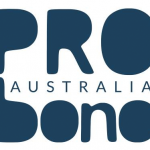AICD Releases Second Edition of its NFP Governance Principles

5 March 2019 at 7:15 am
The AICD Principles document is an extremely valuable resource for NFPs, their directors, and other stakeholders, writes Darryl Swindells, from HLB Mann Judd Sydney.
The Australian Institute of Company Directors has just released the second edition of its Not-for-Profit Governance Principles.
Murray Baird, assistant commissioner and general counsel of the Australian Charities and Not-for-profits Commission, spoke on the principles, and noted that the AICD Principles are different to the five governance standards of the ACNC, which apply to all charities.
Baird noted that ACNC Governance Standards are a set of minimum standards that a charity must meet to maintain registration with the ACNC, whereas the AICD Principles identify the ingredients for good governance of all NFPs, ie charities and other NFPs. Not for profits that follow the 10 AICD Principles are likely to have a clear purpose, and the tools to achieve that purpose.
Angus Armour, chief executive officer and managing director of the AICD, said the principles had been developed after extensive consultation with the sector, which brought to light that those in the sector considered that any set of principles should reflect an understanding of, and accommodate, the diversity of the sector, recognising the variations in the size, resources and maturity of the organisations in the sector.
Amour noted that there had been extensive consultation with the AICD’s NFP Chairs Committee in the development of the principles. The AICD recognises that NFP’s play a critical role in the functioning of Australian society. Amour also said that the guide “will enable boards to have conversations and decide what to do” to improve their governance.
He also noted that these principles are not a set of rules, but a tremendous resource for NFPs.
The differences between the 2013 and 2019 principles reflect the significant changes in the NFP sector.
The new principles also have two other valuable resources to support the 10 principles:
- guidance on how to apply each principal, and
- supporting practices, to give examples of what can be done to implement the principles.
The AICD document also includes two excellent case studies that can be followed through on each of the principles, providing more guidance.
The 10 principles are:
1. Purpose and strategy
2. Roles and responsibilities
3. Board composition
4. Board effectiveness
5. Risk management
6. Performance
7. Accountability and transparency
8. Stakeholder engagement
9. Conduct and compliance
10. Culture
Phil Butler, sector leader, NFP of the AICD, lead a panel discussion on the new publication.
Butler noted that the document has questions for directors on each section, and the guidance to help directors to answer those questions.
Butler also noted the interaction of each of the principles, and how they complement each other.
There was some discussion about Principle 10: Culture, with comments from panel member Liesel Wett, chair of Goodwin Aged Care Services, that culture is set at the top – ie the board.
Wett commented that a board should set expectations for its own behaviour, and a system to evaluate the performance of a board. Also, a board should be constantly testing the culture of itself, and the culture of its organisation.
Wett also commented on the importance of a board discussing its process for complying with its principles with management, employees, and other stakeholders, and keeping them informed of the continuing work by a board to have good governance.
There was also discussion on Principle 6: Performance, and the necessity to measure both financial and non-financial performance to determine whether or not an NFP is being effective in meeting its purpose.
Another important idea discussed was that each board should define what success is, and how it will be measured.
In my opinion, if a board does not define success, it can never celebrate its achievements. At the end of each year, an NFP should be able to say whether or not it has had a good year, and without defining what a successful year is, there can be no celebration, or effective plans to improve.
The AICD Principles document is an extremely valuable resource for NFPs, their directors, and other stakeholders. I commend the document to every NFP, irrespective of size.
This article was authored by Darryl Swindells, audit and corporate advisory partner at HLB Mann Judd Sydney.








